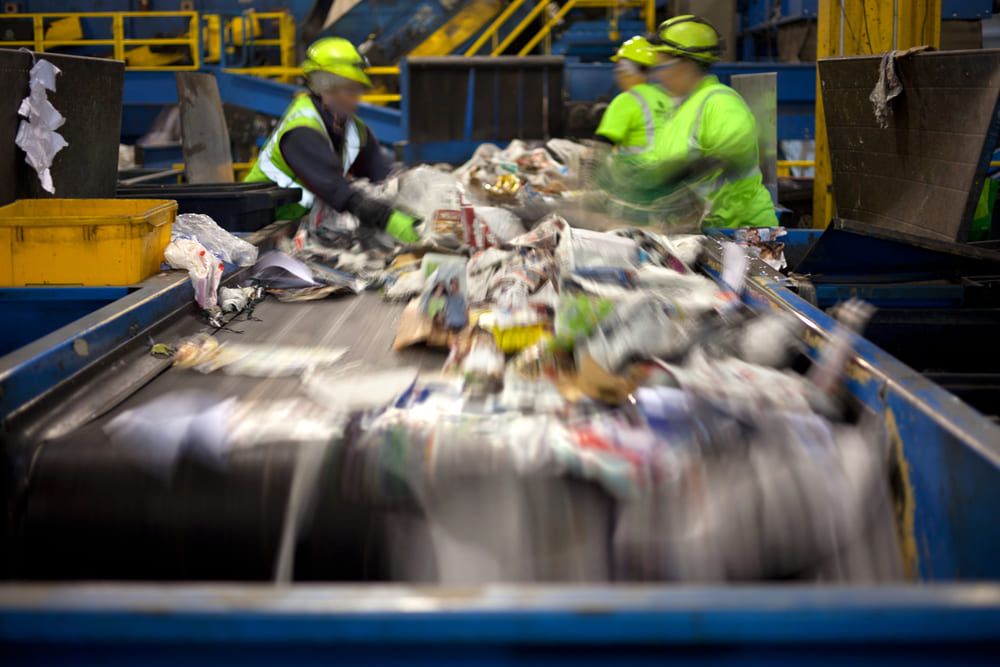News
Giving New Life to Hard to Recycle Materials

If some products of your waste stream are hard to recycle materials, that does not necessarily mean they are unrecyclable. By partnering with iSustain you get the knowledge and expertise of decades of waste stream consolidation. Chances are that difficult debris is one we have prior experience in repurposing.
Hard to Recycle Materials: Plastic Products
In May 2021 the Smithsonian shared that, “Of the 40 million tons of plastic waste generated in the United States last year, only five to six percent—or about two million tons—was recycled.” 85% went into landfills, and 10% was incinerated.
As easy as it is to bury plastic in the Earth or burn it into the atmosphere, your business can actually save money along with protecting the environment by recycling your plastic waste with iSustain. We have the capabilities to process all forms of plastic resins and specialize in creating customized recycling programs for clients interested in maximized scrap value and environmental responsibility.
Hard to Recycle Materials: Paper Products
Paper waste doesn’t include only office paper, books, and magazines but also cardboard, fiber cores, coated book stock, and more. We can recover the value from your paper waste and put it back into your manufacturing stream. One of the most common mistakes to avoid with paper waste is to keep it clean and dry.
Our comprehensive programs include solutions to your fiber and paper byproducts. Not only that, but your company can generate goodwill and stakeholder value by ensuring that you are diverting as much material as possible from your community’s landfill. Our expertise allows us to develop efficient, turn-key recycling programs that are specifically designed to complement your existing manufacturing operation.
Hard to Recycle Materials: Food Waste
At iSustain our extensive network allows us to recycle large volumes of food waste into beneficial reuse or energy. We use that network to assist you and in turn our environment by ensuring full product destruction and diversion from landfills. Often food manufacturers have to ineffectively dispose of millions of tons of packaged and non-packaged food waste every year.
“In 2018 alone, EPA estimates that about 63 million tons of wasted food were generated in the commercial, institutional, and residential sectors, with about 32 percent being managed by animal feed, bio-based materials/biochemical processing, codigestion/anaerobic digestion, composting, donation, land application, and sewer/wastewater treatment.” – United States Environmental Protection Agency
With the rising cost of disposal and landfill bans, we have been working hard to seek out markets and develop technologies that turn organic food waste into favorable value. iSustain proactively helps manufacturing and distribution operations develop food waste recycling programs.
Hard to Recycle Materials: Metal
Scrap metal, the by-product of industrial manufacturing, construction and demolition, and the disposal of obsolete metal products, is a prime opportunity for the production of new raw materials. Steel, copper, aluminum, and more can be produced from this continuous resource that can be remelted and reshaped into new products countless times. Around 69% of crude steel in the United States in 2019 was made of recycled scrap metal in this manner.
Examples of scrap metal that we at iSustain have given new life to include:
- #2 Shred
- Plate & Structural
- Used Beverage Container, Aluminum
- Foil Films
- Brass
- Copper
- Tin
iSustain provides resources to the basic manufacturing sector while conserving natural resources and protecting the environment. We help you handle the difficult problem of developing a metal recycling program and putting money back into your pocket in the process.
All These Hard to Recycle Materials and More
Plastic, paper, food, and metal are just some of the many materials we have helped businesses repurpose and unlock the potential of. Let us help your organization divert waste from landfills and incinerators by utilizing any methods available within the mechanical, chemical, reuse, waste, and energy sectors. Contact us today so we can provide your workplace recycling solutions and increase provide it circularity.